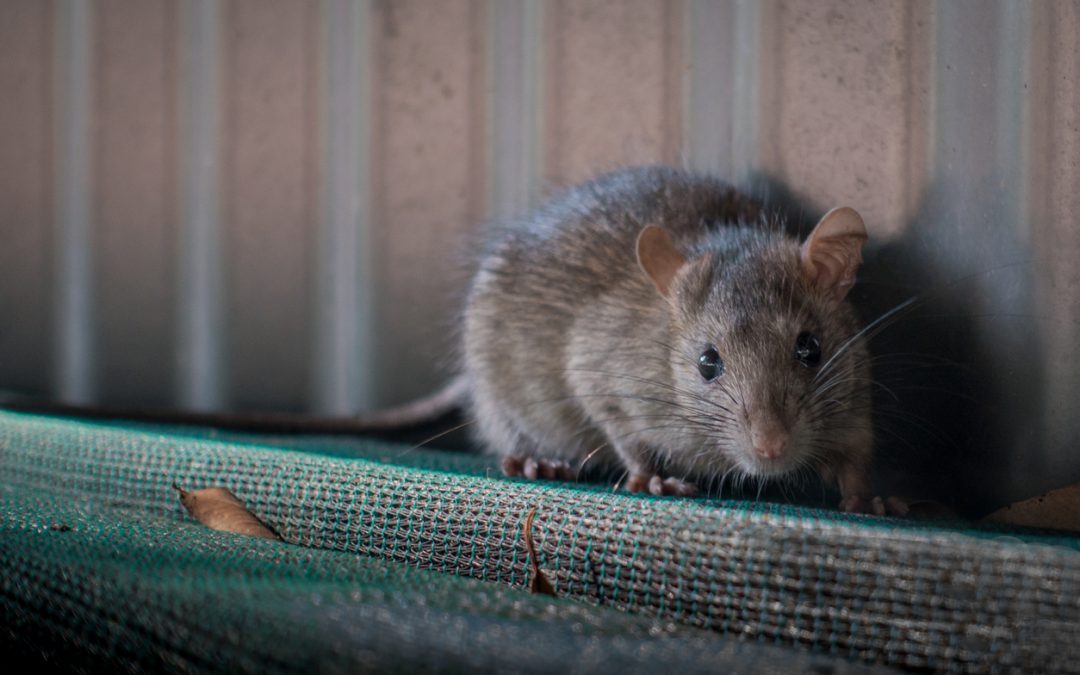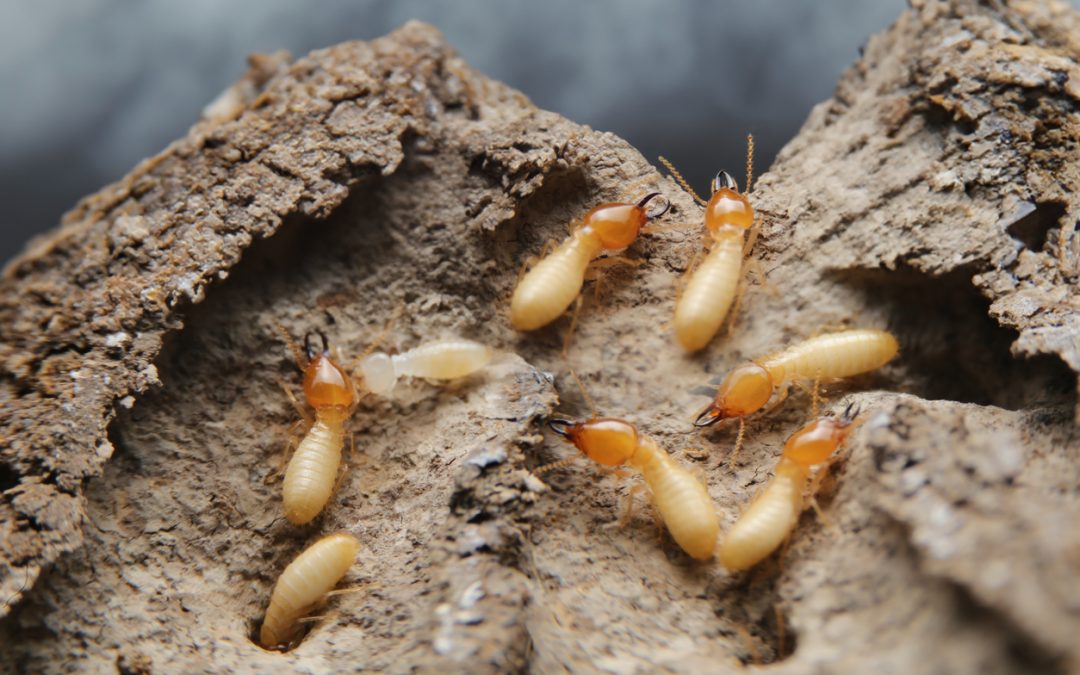
How To Keep Rats Away In Winter
They’ll keep you up at night, eat your food and damage your furniture.
A pack of rats is the last thing you need running rampant through your home during the coldest months of the year. Learn how to protect your home with expert rat control services in Adelaide in this Hivemind blog.
What questions will this article answer?
What attracts rats to your home in winter?
Rats are actively seeking warmth, shelter and food.
Signs of a rat problem in winter
Look for roof damage, gnaw marks, grease marks, droppings, an unpleasant odour and noises in your roof. These are all classic signs of rats you should watch for.
Problems caused by increased rat activity
Rats spread diseases, make a mess and cause damage to your home. If left untreated, a rat infestation can quickly escalate.
4 ways to prevent a rat problem
Identify and proof all access points to your home, remove sources of food and water, practice good waste management and consider using DIY rat deterrents - all important steps for effective rat prevention in winter.
Professional rat management
We’ll locate and remove rat nests and seal off entry points to your home, and then use chemical baits and physical traps.
Choose Allstate for long-lasting and effective rat control
We’re available 24/7 for urgent advice and innovative solutions to all rat issues in homes and businesses across all suburbs of Adelaide.
What attracts rats to your home in winter?
Although they are active all year round, you may notice more active rats as the weather cools down. You might then wonder why this is happening after the peak breeding season has passed.
The reason? Rats thrive in temperatures between 18-23 degrees, and so they will look for warm places, such as your home, to nest and shelter! On top of this, your home also has plenty of delicious food and fresh water to help them see out a long cold winter.
Signs of a rat problem in winter
Not sure how to tell if there’s an increased rat activity in your home? Here’s some things to look for:
Roof damage
To create cosy nesting areas and widen entry points to your home, you may find rats have gnawed holes and damaged insulation in your roof.
Gnaw marks
Known for their relentless gnawing, rats will leave behind bite and gnaw marks on your walls and doors, timber structures, furniture, metal and plastic objects, as well as cardboard and paper based products in your home.
Grease marks
If you notice dark rub marks around your skirtings and walls, this could well be the result of greasy rat fur and may be a sign that the area has high foot (paw!) traffic.
Droppings
Like large grains of black rice, rat droppings are normally 1-2cm long, brown-black coloured and form a pointed oval shape. They will turn grey when dried out.
Unpleasant odour
An accumulation of rat droppings and urine isn’t just messy, it leaves behind a strong, musty and sour smell that lingers in your home.
Noises in your roof
Rats are normally most active at dusk and dawn, and you’ll often hear scratching, gnawing, scampering, rustling, chomping, clawing and squeaking sounds coming from your roof space just as you’re trying to get your beauty sleep!
Rats in your roof at night? Speak to an expert today.
 or
or
Problems caused by increased rat activity
Pest rodents are difficult to deal with, and you definitely don’t want to be hosting a whole pack of rats in your home!
Here’s why rats don’t make the most ideal houseguests:
Health concerns
With unhygienic foraging habits, rats are known for carrying and transferring a range of germs, bacteria and nasty diseases through their fur, saliva, droppings and bites. These include hantavirus, leptospirosis and tularaemia. Some people with allergies may also find themselves sensitive to ticks and flea parasites which are found in rat fur.
They’re messy
Rats don’t just leave half nibbled food scraps scattered around the floor. In an infestation, you’ll find rat waste scattered in the most inconvenient spots in your home, as well as nesting debris and tufts of insulation floating around.
Damage to your home
To keep their constantly growing incisors under control, it makes perfect sense that rats will gnaw on anything that they can literally sink their teeth into! This can include furniture, mesh screens, pipes, timber, insulation, conduits and cables, which may lead to plumbing issues, electric short circuits and fires.
4 ways to prevent a rat problem
With the ability to reproduce quickly and at a young age, it doesn’t take long for a large population of pesky rats to be established. We’ve put together our top four tips so that you can make sure this doesn’t happen at your home:
Identify and proof all access points to your home
Quick, nimble and possessing sharp teeth which can gnaw through timber and insulation, rats can squeeze through the smallest of gaps and enter your home. However, by regularly inspecting your roof and exterior parts of your building for any holes, openings and cracks, and then sealing them, you’ll create less opportunities for a rat infestation in your home. We recommend:
- Sealing gaps with waterproof silicone or other appropriate fillers
- Reinforcing windows and doors with weather strips
Remove attractants
Hungry rats can detect food smells from up to 2km away and will actively scavenge for resources when the weather cools down. To keep them away from your yard consider:
- Keeping outdoor dining areas clean and wiping down barbecues
- Storing food in tightly sealed containers
- Keeping less fruit and vegetable plants
- Remove pet food, bird and chicken feed overnight
Waste management
Easy to access with plenty of food scraps on offer, rubbish bins, compost and waste areas are popular feeding sites for rats. You can avoid this problem by:
- Keeping waste areas clean and disinfected
- Washing rubbish bins regularly with detergent and hot water
- Ensuring that rubbish is stored in sturdy bags and bins have well-fitted lids
- Emptying bins regularly to prevent overflow
DIY rat deterrents
You can purchase ultrasonic rat deterrent devices and place them around your yard, making it a more hostile place for rats to visit. These targeted devices emit unpleasant ultrasonic sounds that are only detected by rats and not people.
Another natural approach is to apply strongly scented homemade sprays around your garden. These can be made by mixing water with eucalyptus and citronella oils, vinegar or cayenne pepper. Use this method with caution, however, if you have pets.
Keep rats away for good. Speak to our expert team.
 or
or
Professional rat management
Rats breed quickly, and in the blink of an eye you have an infestation. This makes it equally important to identify the source of the increased rat activity and treat it fast.
Our approach is to locate and remove rat nests and seal off entry points to your home, and then control the rat population using:
Chemical baits
Discreet and tamper-proof, our rodent bait stations contain a targeted rodenticide making them safe to use around children and pets. We’ll place them in well known feeding areas and around entry sites to discourage rats from coming inside.
Physical traps
For more severe rat infestations that require a faster reduction of the rat population, physical traps can be set up containing bait that can lure unsuspecting rats for capture.
Choose Allstate for long-lasting and effective rat control
With the weather cooling down, the last thing you need to worry about is rats running around your home and leaving a mess.
Rest assured, Allstate has you covered.
Our friendly and highly trained pest technicians are always fully equipped with modern and targeted treatments to successfully resolve rat problems in residential, commercial and industrial settings.
Since 1986, Allstate has provided premium pest control services to all suburbs of Adelaide.
We’re available 24/7 for urgent enquiries and offer payment plans and competitive warranties on all our treatments.
Don’t let a few rats turn into a full blown infestation and ruin your cosy winter plans – reach out to Allstate today.




